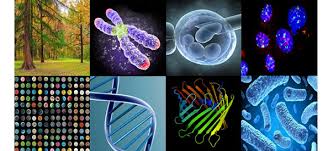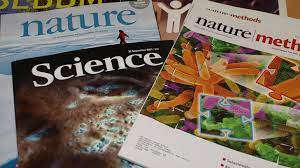S1 M2 GENETICS SCIENTIFIC ENGLISH
Topic outline
-
 The Scientific English course is designed to equip students with the skills and knowledge needed to understand, critique, and create scientific articles. Participants will learn about the structure of research papers, scientific databases, literature search techniques, and the intricacies of scientific writing. The course aims to empower students to read effectively and wisely scientific articles, and by the end of the course to write and publish their own research articles.
The Scientific English course is designed to equip students with the skills and knowledge needed to understand, critique, and create scientific articles. Participants will learn about the structure of research papers, scientific databases, literature search techniques, and the intricacies of scientific writing. The course aims to empower students to read effectively and wisely scientific articles, and by the end of the course to write and publish their own research articles. -

Faculty: Sciences of Nature, Life and Earth
Department: Biology
Master 2 nd Level, Genetics
Coefficient: 02
Credits: 02
Evaluation: Control + Exam
-
-
the communication space for Master 2 Genetic students serves as a pivotal tool to foster collaboration, knowledge-sharing, and academic support. This platform aims to provide students with an interactive forum where they can engage in discussions, exchange ideas, and seek clarification on challenging concepts.... its will facilitate open communication among students, and is an invaluable resource for enhancing their learning experience.
-
this forum will offer a platform for students to discuss challenges, seek advice, and share resources related to their master's thesis projects.
-
- purpose: it will help you Facilitate critical analysis of published papers in genetics.
- Choose a paper regularly, and discuss experimental design, results, and implications.
-
this chat Encourage thoughtful discussions on ethical considerations in genetics research and applications
-
you could share your project updates, coordinate tasks, and address group-related challenges.
-
-

Course Outline:
This course aims to provide a comprehensive understanding of scientific writing by covering key objectives, including: understanding the purpose of scientific articles and the IMRD structure, mastering the role of abstracts and keywords; comprehending the components of introduction sections and learning to create compelling introductions; appreciating the importance of clear methodology descriptions and ethical considerations; effectively analyzing and presenting research findings; summarizing key findings, and discussing the results.
Assessment:
- Quizzes and assignments on various aspects of scientific writing.
- Peer reviews of classmates' writing.
- Completion of a research paper in IMRD format.
Outcome: Upon completion of this course, students will have a solid understanding of scientific writing principles, the structure of research articles, and the ability to conduct literature searches, critically evaluate articles, and write and publish their own research papers in a clear, concise, and well-structured manner.
-

Course Prerequisites:
- Proficiency in the English language.
- Basic understanding of research methodologies and scientific concepts.
-
Introduction Section:
Materials and Methods:
Conducting Experiments
Results and Discussion:
Conclusion and References:
Searching for Scientific Articles:
Reading and Extracting Knowledge from Scientific Articles:
Writing and Publishing a Scientific Article:
-
Scientific English in Genetics: Building Your Scientific Vocabulary
-
-

Where to Search scientific publications?
-
-
Experiments, labs, and projects at university, Master's (Master 2), and Ph.D. levels is crucial for the practical application of theoretical knowledge. These experiences not only deepen understanding but also cultivate essential skills like critical thinking and problem-solving. In Master's and Ph.D. programs, engagement in labs and projects promotes research contributions, encouraging innovation and pushing the boundaries of knowledge...
-
-
Referencing serves a fundamental purpose in academic writing by providing a systematic and organized way to acknowledge and credit the sources of information used in a piece of work. The primary utility of referencing lies in three key areas:
Credibility and Academic Integrity
- Avoiding Plagiarism
- Facilitating Further Research
-
-
The discussion section in an academic or research document serves a crucial purpose by delving into the interpretation, analysis, and significance of the presented results. It is the space where the author critically examines the findings in relation to the research question, objectives, and relevant literature.
-
-
The writing of an abstract, introduction, and conclusion serves distinct yet interconnected purposes in any academic or research document. Together, the abstract, introduction, and conclusion form a cohesive framework that guides the reader through the research journey, from initial curiosity to a comprehensive understanding of the study's contributions and implications.
-
-
The purpose of presenting results in a scientific or academic context is to effectively communicate findings to the audience. By utilizing tables, graphs, and histograms, we enhance the visual representation of data, making complex information more accessible and understandable. Tables provide a structured format for presenting numerical values, while graphs and histograms... offer a visual depiction of trends, patterns, and relationships within the data. This visual representation not only facilitates comprehension but also aids in drawing meaningful conclusions and insights from the results, contributing to a more impactful presentation of research outcomes.
-
-
this session is a comprehensive revision of all the lessons covered throughout the semester, diligently addressing students' questions and inquiries regarding the upcoming exam and their master theses. the focus was on providing clarity, guidance, and support to ensure that students are well-prepared and confident as they approach their assessments.
-

